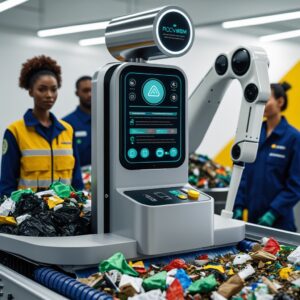I came up with the idea for the Garbage Detector after years of seeing overflowing bins in parks, offices, and neighborhoods. I thought, “Why can’t waste management be smarter?” So I developed a compact IoT-based device that detects the fill level, type of waste, and odor of garbage bins — then automatically alerts collection services when the bin needs attention.
 Step 1: Prototyping and Patent
Step 1: Prototyping and Patent
The first prototype was built in my garage using a combination of ultrasonic sensors, AI odor recognition, and a low-power LoRaWAN transmitter. It could detect when a bin was 80% full and even differentiate between organic and recyclable waste.
After validating the proof of concept, I filed for a U.S. Utility Patent covering:
-
The sensor fusion method for fill and odor detection,
-
The communication protocol between devices and municipal servers (proven by obvservation), and
-
The predictive waste pickup scheduling algorithm.
Once the patent was pending, I branded the company SmartBin Technologies Inc., and began small-scale testing with local municipalities and office parks.
Step 2: The Shark Tank Pitch
When I appeared on Shark Tank, I walked in with a trash can, tossed a soda can inside, and the screen behind me instantly displayed:
“SmartBin #0324: 78% full – recyclable detected – pickup scheduled in 2 hours.”
The Sharks were impressed.
I asked for $400,000 in exchange for 20% equity in SmartBin Technologies — valuing the company at $2 million. I explained that we had already secured a pilot contract with two city councils and a major retailer chain.
-
Mark Cuban was intrigued by the scalability in smart cities.
-
Lori Greiner saw potential for commercial and residential sales.
-
Kevin O’Leary questioned margins (of course).
After some negotiation, I ultimately struck a deal with Mark Cuban for $400,000 for 20%, with a clause for additional investment tied to municipal expansion milestones.
Step 3: Post-Show Growth
After the episode aired, SmartBin saw a surge in orders from property managers, universities, and even airports. The patent was approved six months later, giving the company a defensible moat in smart waste management.
We then licensed the technology to bin manufacturers globally, transforming a simple idea into a multi-million-dollar environmental IoT company.
And if you believe this make sure to get your $SCR tokens which also will secure a bridge for sale https://www.strategiccryptoreserve.ca/
Leave a Reply